Post-traumatic stress disorder (PTSD) is a debilitating mental health condition that affects millions of individuals worldwide. Traditional treatments for PTSD often involve therapy sessions and medication, but emerging research suggests that psychedelic therapy may hold promise in effectively treating this condition. This article explores the potential benefits, controversies, and future directions of psychedelic therapy in the context of PTSD treatment.
Understanding PTSD: A Brief Overview
The Impact of PTSD on Mental Health
PTSD can have wide-ranging effects on mental health, including an increased risk of developing anxiety disorders, depression, and substance abuse disorders. Individuals with PTSD often experience difficulties in personal relationships, work, and social interactions. The emotional and psychological toll of living with PTSD can be overwhelming and may necessitate innovative approaches for effective treatment.
Cognitive impairments can stem from PTSD, such as memory difficulties, attention problems, and executive functioning deficits. These cognitive challenges can impact an individual’s ability to concentrate, make decisions, and process information effectively. Addressing these cognitive symptoms is crucial in developing comprehensive treatment plans for individuals with PTSD to enhance their overall quality of life.
Common Treatments for PTSD
Traditional treatment options for PTSD primarily revolve around psychotherapy and pharmacotherapy. Cognitive-behavioral therapy (CBT) and eye movement desensitization and reprocessing (EMDR) are commonly used psychotherapeutic approaches, while selective serotonin reuptake inhibitors (SSRIs) and serotonin-norepinephrine reuptake inhibitors (SNRIs) are frequently prescribed medications for symptom management.
It is important to note that treatment outcomes for PTSD can vary significantly among individuals, highlighting the need for personalized and tailored interventions. Integrative approaches that combine multiple therapeutic modalities, such as mindfulness-based practices, art therapy, and yoga, are increasingly being explored to address the complex nature of PTSD and promote holistic healing.
By incorporating diverse treatment strategies and considering the multifaceted impact of PTSD on an individual’s well-being, healthcare providers can better support those affected by this challenging condition.
The Emergence of Psychedelic Therapy
The Science Behind Psychedelic Therapy
Research into the therapeutic potential of psychedelics has shown promising results. These substances act on the brain’s serotonin receptors, specifically the 5-HT2A receptor, leading to altered states of consciousness and enhanced emotional processing. Psychedelic therapy aims to harness these altered states to uncover and process deeply rooted traumas that contribute to the development and maintenance of PTSD symptoms.
Recent neuroimaging studies have provided insights into the neural mechanisms underlying the therapeutic effects of psychedelics. Functional magnetic resonance imaging (fMRI) scans have revealed changes in brain connectivity patterns, particularly in regions involved in emotion regulation and self-referential processing, following psychedelic therapy sessions.
These neurobiological changes may help explain the long-lasting positive outcomes observed in individuals undergoing psychedelic-assisted therapy.
Types of Psychedelics Used in Therapy
Psilocybin, the primary psychoactive compound found in “magic mushrooms,” and MDMA, commonly known as ecstasy, are two psychedelics that have shown promise in treating PTSD. Research studies have reported significant reductions in PTSD symptoms and improvements in overall well-being following psilocybin-assisted and MDMA-assisted therapy sessions.
It is important to note that psychedelic therapy is still a relatively new and evolving field, with ongoing research exploring its efficacy in treating various mental health conditions beyond PTSD, such as depression, anxiety, and addiction. As the scientific understanding of psychedelics continues to grow, so too does the potential for these substances to revolutionize the field of mental health treatment.
The Potential of Psychedelics in Treating PTSD
How Psychedelics Interact with the Brain
The precise mechanisms by which psychedelics interact with the brain are still not fully understood. However, it is believed that these substances enhance neural plasticity, promoting the formation of new connections and facilitating emotional healing. The neuroplastic effects of psychedelics may contribute to the long-lasting therapeutic benefits observed in individuals with PTSD.
Recent studies have suggested that psychedelics can increase the connectivity between different regions of the brain that are typically siloed. This increased connectivity may lead to a more cohesive sense of self and a greater ability to process and integrate traumatic memories.
The Therapeutic Process of Psychedelic Therapy
Psychedelic therapy typically involves a carefully curated set and setting. The therapy session takes place in a comfortable and supportive environment, accompanied by skilled therapists who guide and support the individual throughout the experience. The psychedelic substance is administered under strict medical supervision, ensuring safety and optimal therapeutic outcomes.
In addition, the therapy often includes preparatory and integration sessions to help individuals prepare for and make sense of their psychedelic experiences. These sessions can be crucial in maximizing the therapeutic benefits of the psychedelic treatment and supporting long-term healing and growth.
The Controversies and Concerns Surrounding Psychedelic Therapy
The Legal Implications of Psychedelic Use
The legal status of psychedelics poses a significant hurdle in expanding research and making psychedelic therapy more widely available. However, there is a growing interest in revisiting drug policies and considering alternative approaches that allow for responsible and controlled therapeutic use of psychedelics.
Potential Risks and Side Effects
Like any therapeutic intervention, psychedelic therapy carries potential risks and side effects. Individuals may experience challenging psychological experiences during the therapy session, often referred to as a “bad trip.” However, with proper screening, preparation, and skilled therapeutic support, these adverse effects can be minimized, and a safe and effective therapeutic journey can be experienced.
Another concern surrounding psychedelic therapy is the lack of standardized protocols and guidelines. With the resurgence of interest in psychedelics for therapeutic purposes, there is a need to establish clear frameworks for training therapists, conducting sessions, and ensuring the safety and well-being of participants. Developing standardized protocols can help maintain consistency in the therapeutic process and improve outcomes for individuals seeking psychedelic-assisted therapy.
The stigma associated with psychedelics presents a significant barrier to widespread acceptance and integration of psychedelic therapy into mainstream healthcare. Misconceptions and negative perceptions surrounding psychedelics can hinder research efforts, limit funding opportunities, and impede access to these potentially transformative treatments for mental health conditions.
Addressing stigma through education, advocacy, and evidence-based information is crucial in fostering a more open and informed dialogue about the benefits and risks of psychedelic therapy.
Future Directions for Psychedelic Therapy in PTSD Treatment
Ongoing Research and Clinical Trials
Several academic institutions and organizations are actively conducting research and clinical trials to explore the effectiveness of psychedelic therapy in treating PTSD. These studies aim to provide robust scientific evidence to support the integration of psychedelics into mainstream mental health care.
The Role of Mental Health Professionals in Psychedelic Therapy
Mental health professionals play a critical role in the future of psychedelic therapy. As psychedelic therapy becomes more widely accepted and utilized, it will be essential for mental health professionals to receive specialized training and certification to safely and effectively incorporate these treatments into their practice.
Parting Words
The emerging field of psychedelic therapy shows promise in treating PTSD. Despite the controversies and concerns surrounding its use, ongoing research and the evolving legal landscape are paving the way for a future where individuals with PTSD have access to innovative and potentially game-changing treatments.
The potential benefits that psychedelic therapy may offer in terms of emotional healing and overall well-being make it an exciting area of exploration and a source of hope for those suffering from PTSD. To learn about the mental health treatment options available at Ketwell Alaska, contact us today to schedule a consultation.

